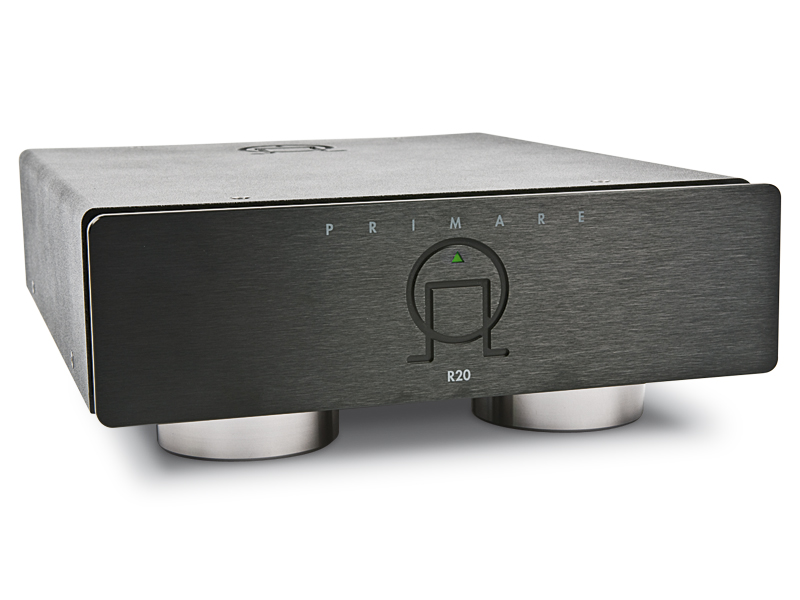TechRadar Verdict
Very well put together, with high-quality components and casework, the R20 has a large, expansive soundstage which is high on luxury. It times well and has decent bass resolution too, and thus will slot nicely into many vinyl systems
Pros
- +
High build quality along
- +
Good range of impedance settings
- +
Produces a warm, generous sound
Cons
- -
Variable gain for MC might be more useful than for MM
- -
S one-kOhm impedance setting would be useful for some MCs
Why you can trust TechRadar
The R20 is built in the solid style of all Primare products, but being relatively small, the heavy-gauge steel casework and precisely etched front panel seem even more substantial.
The theme continues with three aluminium-and-rubber feet. Another Primare trait is the hidden power switch, located under the front left side of the case, which keeps up the clean appearance and discourages switch-off.
At the rear there are inputs and outputs attached directly to the PCB and floating from the chassis itself, presumably as a means of keeping hum at bay. There's switching for MM and MC cartridges and six impedance settings.
We'd like to have seen a one-kOhm setting as well, and haven't come across many MCs that require the very low settings available. But undoubtedly some do, and the R20 could prove very useful in those situations.
Internally there's the option to add a shorting jumper across two pins on either channel, which increases MM gain. This is the first time we've come across such a feature, and initially we thought there was an error in the manual.
After all, greater MC gain is more likely to be required. But no – it's for MM alone; however, Primare can increase MC gain if requested.
Sound quality
To start with we connected the R20 to the output of a Sumiko BPS Evo III high-output MC cartridge, which has similar characteristics to an MM, with a 2.5mV output and a preference for 47-kOhm load impedance.
It therefore worked best on the R20's MM gain setting, producing a lush and large-scale result which, while not as clear-cut and gritty as with our Trichord Delphini reference, was inviting and musically engaging.
But when we switched over to a van Den Hul frog MC with a 0.55mV output and a preference for impedances above 100 ohms, there was clearly a shortage of both gain and high-frequency resolve. So much so that we went back to Primare to check that all was right – a request that prompted a re-evaluation of the R20 by the firm and an update to MkII status.
This change enabled it to reveal its ability to reproduce space, detail and a strong sense of timing. It's not quite as transparent as Trichord's slightly dearer Dino Mk2/Dino+ model (£563) and doesn't quite match the dynamics on offer from that quarter either, but it does have a more luxurious feel that works well with turntable-and-cartridge combinations that err towards the lean in balance terms.
Musically, it gets things right, delivering a nimble and engaging result with any decent slab of vinyl. Its smoothness also encourages higher-level listening, as the mid and top are less inclined towards hardness.
This also helps with less refined recordings, which can sound a bit strident via the Trichord – those with heavy saxophone or trumpet workouts, for instance, where the microphone can sound like it's under serious duress. The scale of the soundstage the model produces is quite enticing too, solid and placed well behind the speakers.
The R20 is well suited to more affordable MCs and leaner-sounding turntables. It works with other varieties too, but its luxurious sound balances out the former extremely well. For example, it would suit a Rega P7 better than a Pro-Ject RPM 9X. However, it'll provide the joy of vinyl with either.
